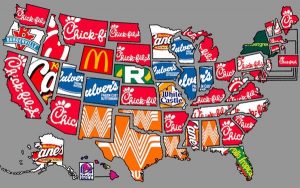
I am a leader in innovation in my industry.
I employ a handful of dedicated and successful employees who work on flexible schedules.
I believe in efficient and lean business practices cutting bureaucracy across the board.
Am I describing a savvy tech startup founder who is launching his IPO next week? Nope, I am describing a successful drug dealer working in black markets across the country. “Under the table” trade employs thousands of workers- many of whom are entrepreneurs. Products are sold, profits are made and businesses grow. Unsanctioned economics display business fundamentals free of constraint and charged with innovation. While these activities are illegal, it is not impossible to learn a thing or two to apply to our own business.
Illicit Innovation
Illegal, off-the-books businesses collectively account for trillions of dollars in commerce and employ fully half the world’s workers. What dark businesses like this do is fill a void in the market. Robert Neuwirth for Wired.com points out that for a long time, dual-SIM-card capability was not offered in a formal market. However, the need was great. Shadow commerce developed these phones in China back in 2007 almost a decade before the legitimate market provided that same thing. Are entrepreneurs so much different?
Top Product
Without formal marketing and advertising avenues, product sold in black market economies has to be good. As angel investor Jason Calacanis puts it: “product speaks.” A customer will not repeat business if the outcome is subpar to competition, skimped or cheated. Pushing quality product is a high priority when it comes to the high-stakes and dangerous world of drug dealing. “When you’ve actually produced a top-notch product, it will market itself.” Sebastian Dillon. Marketing an inferior product well happens in the legitimate world all the time. Where’s the legitimacy in that?
Tim Askew, CEO of Corporate Rain International, offers his viewpoint on incarcerated prisoners:
“These guys are not idiots. They are often already clever, experienced, autodidactic entrepreneurs from their years of selling drugs and other nefarious activities.”
The Fine Line
Rome is lined with counterfeit Fendi purses. These products are sold as copies of the real thing. Outlaw entrepreneurs see what is selling and try to emulate that. In the commerce world of today, a novel idea is always followed by a ‘competitor’ that does the exact same thing, marketed a little differently. When something works, it is emulated. When starting a project, we look for ‘best practices,’ Isn’t this just taking a copy of something that already works? Criminals push boundaries. They work with limited resources to make their world work. So do entrepreneurs.
“Crime is a logical extension of the sort of behaviour that is often considered perfectly respectable in legitimate business.” – Robert Rice, The Business of Crime
Walk the Line
Alexa Clay’s and Kyra Maya Phillips, authors of “The Misfit Economy: Lessons in Creativity From Pirates, Hackers, Gangsters and Other Informal Entrepreneurs” offer interesting points from covert individuals:
“What we found was that they understand the systems they are trying to change before they go in and change them. They become completely one with those systems and they understand every element of that system and how those elements connect to each other.”
There is a fine line between what is smart business and what is illegal. Shadow economies can show us the power or capitalism, true buying and selling, and lean business free of bureaucracy and constraints. Can we learn from these outlaw entrepreneurs on how to improve our businesses?
Business & Finance Articles on Business 2 Community(171)
Report Post






